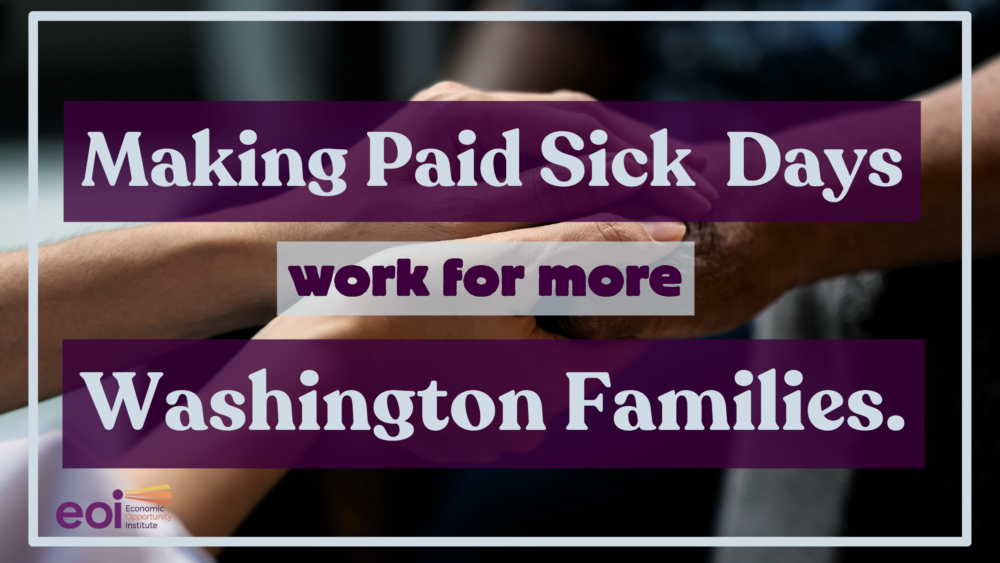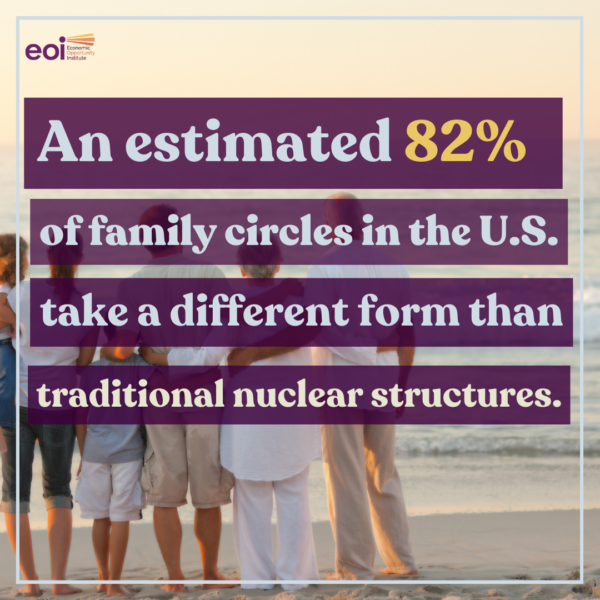
What Is the Issue:
Family is everything—whether genetic or chosen. Everyone should be able to take paid sick and safe leave to take care of their loved ones, no matter how they are related. In Washington state, the Paid Sick and Safe Leave (PSSD) law allows workers to earn leave that can be used to deal with personal illnesses, injuries, or medical appointments of workers or their family members. Paid leave is also available for legal or safety concerns related to domestic violence, sexual assault, or stalking.
However, if you have a loved one who needs care but is not your child, spouse, parent, parent-in-law, sibling, grandparent, or grandchild, you may not be able to take time off to care for them.
This is because Washington’s PSSD family definition is not as expansive as the state’s Paid Family and Medical Leave (PFML) family definition. In Washington, caregivers can take time off to attend to the needs of the aforementioned family categories as well as other individuals who had an expectation to rely on them for care—whether they live together or not.
Who Is Impacted:
This discrepancy in the definition of family does not impact all communities equally. Black, Indigenous, and People of Color (BIPOC), immigrant families, unmarried couples, and the queer community are often unfairly impacted by this gap in the law.
 This is an important distinction to draw when making and implementing policies like sick leave. An estimated 82% of family circles in the U.S. take a different form than traditional nuclear structures.
This is an important distinction to draw when making and implementing policies like sick leave. An estimated 82% of family circles in the U.S. take a different form than traditional nuclear structures.
Many Americans live in intergenerational households or with extended families. In many communities and cultures, living collectively is common; everyone has a title, like auntie, sister, or cousin, even though there is no blood relation or legal connection.
A More Equitable Solution:
It’s time to align the family definitions of PSSD and PFML. Sen. Rebecca Saldaña (D-37) has pre-filed Senate Bill 5793. Rep. Mary Fosse (D-38) is sponsoring the companion House Bill 1991. Both are designed to update the definition of family in the PSSD law to align with PFML, expanding the definition of what a “family” means, and who can get paid time off to be with their ailing, infirmed, or endangered loved one.
TAKE ACTION:
The 60-day legislative session will no doubt move fast – but this policy change is important and deserves to be heard. Here are ways you can help:
· Testify. You can now testify virtually, giving advocates much greater flexibility.
· When the bill is being heard, you can remotely sign in pro and ask others to do the same. Make sure you’re receiving EOI’s action alerts to know when your input is required.
· Find 1-2 personal stories from your members and allies that they would not mind sharing. · Reach out with any questions: gabriela@opportunityinstitute.org.
More To Read
February 11, 2022
Washington’s Child Care Workers Deserve Better—Starting With More Paid Sick Time
As we head into year three of the pandemic, investments in the child care workforce are much-needed and long overdue
August 24, 2021
2021 Federal Reconciliation Package Priorities
The U.S. Congress is working out the details of a Human and Care Infrastructure package that will make major investments in childcare, health care, paid family and medical leave and more
March 27, 2020
Financial Support in the Age of Coronavirus
Our support systems are stronger, but still don't cover many modern job situations
